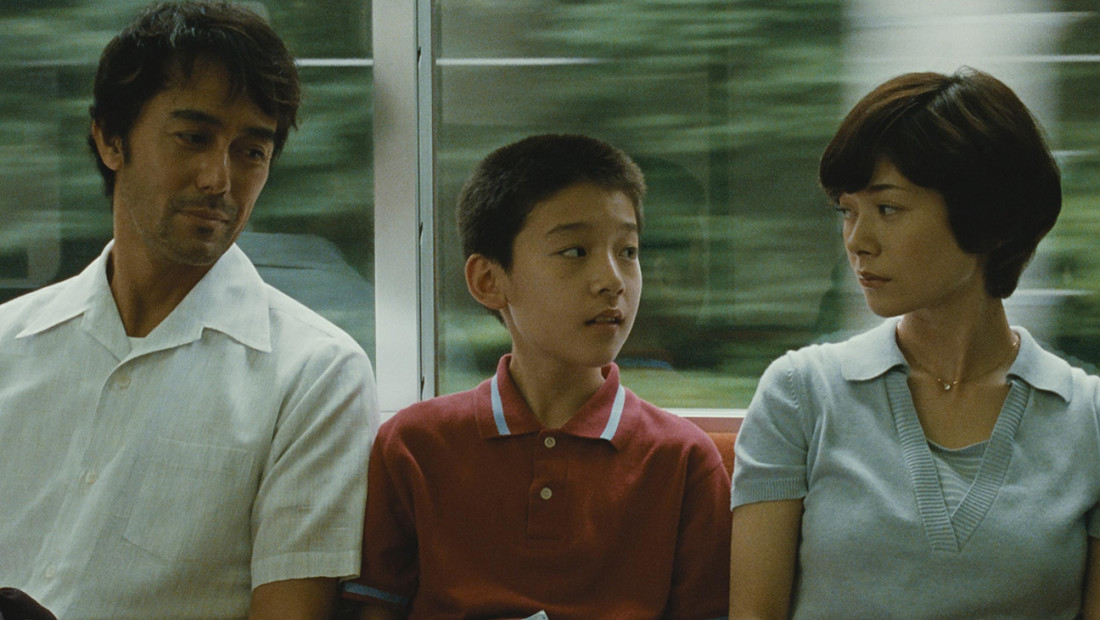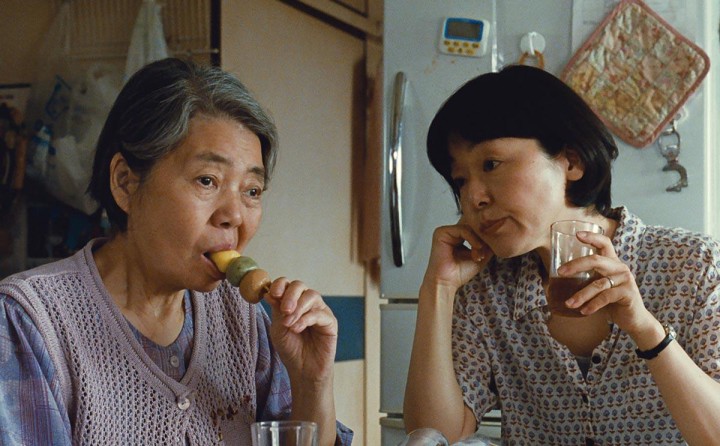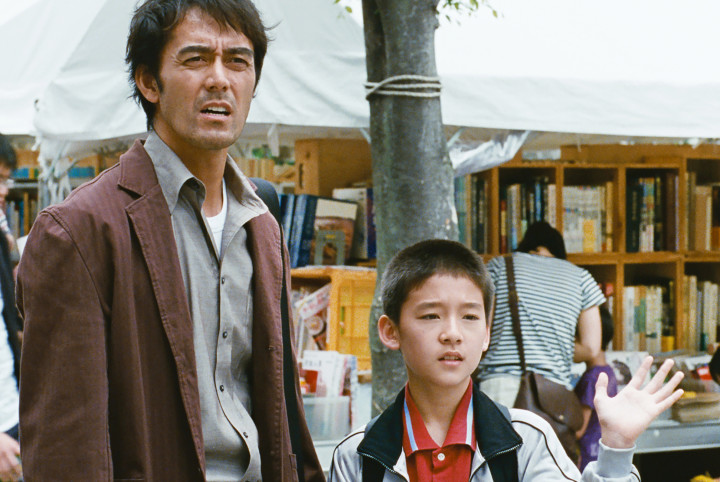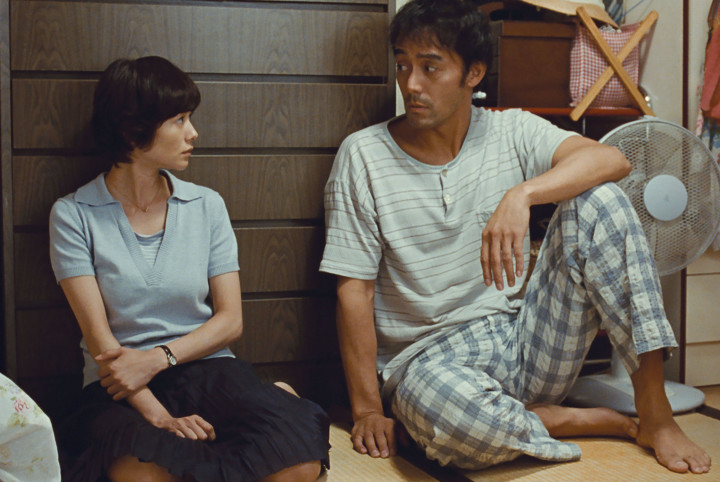Hirokazu Koreeda’s After the Storm is very much what should be expected from the filmmaker. It’s quiet and elegant and speaks to life in small ways. Not much happens (even the typhoon that’s promised in the title does little of note), an aspect that’s supposed to reflect not only realism, but truth. That’s because this isn’t so much a movie that’s supposed to teach you about life, but instead exists as one that wants to relate to its innate and universal humanity. After the Storm — with its two-hour run time — demands a certain patience and trust, since the epiphanies and points the movie doles out are small and slow in coming. If you’re in the mood for this type of languid drama, there are certainly small rewards to be gained.
Our protagonist is Ryota (Hiroshi Abe, Still Walking), a failed novelist with writer’s block and a gambling addiction who’s begun working as a middling private detective. While he says the job’s simply research for his next book, he’s actually just treading water, a shambling, unenergized man who’s lost his son (Taiyo Yoshizawa) to his ex-wife (Yoko Maki, Like Father, Like Son). He’s the picture of a noir detective in a lot of ways, rumpled and irresponsible, occasionally spying on his wife and trying to swindle clients in an attempt to pony up the child support he can never quite manage to pay.
The movie, however, does not go down the road of detective flick, nor is it a depressing foray into a man falling apart. Instead, Ryota’s handled with a deft touch. His digressions — while wrong — are handled by both the film and the characters within it with a certain understanding. On the surface, it may seem as if Koreeda handles Ryota with a bit too much ease. But that would be misinterpreting the tone of the film, which is all about tender feelings like melancholy and familial love. At the same time, Ryota is too pathetic to be truly despised. It helps that the film never takes the easy, “satisfying” way out. Even as Ryota attempts to piece his family back together, there’s never the sense that he’ll manage to do this with any Hollywood ending. Without giving too much about the film away, at best he’s given an opportunity to make a better, healthier life for himself.
The film is all about small revelations, something that feels natural and genuinely thought out. Koreeda’s insight into — and sense for — human nature is really the backbone of the film, and he’s sympathetic to human failing. But it’s dished out in a slow drip that can seem a bit too drawn out at times. After the Storm demands a certain patience, one that I occasionally found difficult to achieve. But, when the credits finally rolled and as I’ve gotten further from the film, the emotions and tones Koreeda explores have stuck with me, something that’s always impressive. Not Rated. Now Playing at Grail Moviehouse.








Before you comment
The comments section is here to provide a platform for civil dialogue on the issues we face together as a local community. Xpress is committed to offering this platform for all voices, but when the tone of the discussion gets nasty or strays off topic, we believe many people choose not to participate. Xpress editors are determined to moderate comments to ensure a constructive interchange is maintained. All comments judged not to be in keeping with the spirit of civil discourse will be removed and repeat violators will be banned. See here for our terms of service. Thank you for being part of this effort to promote respectful discussion.